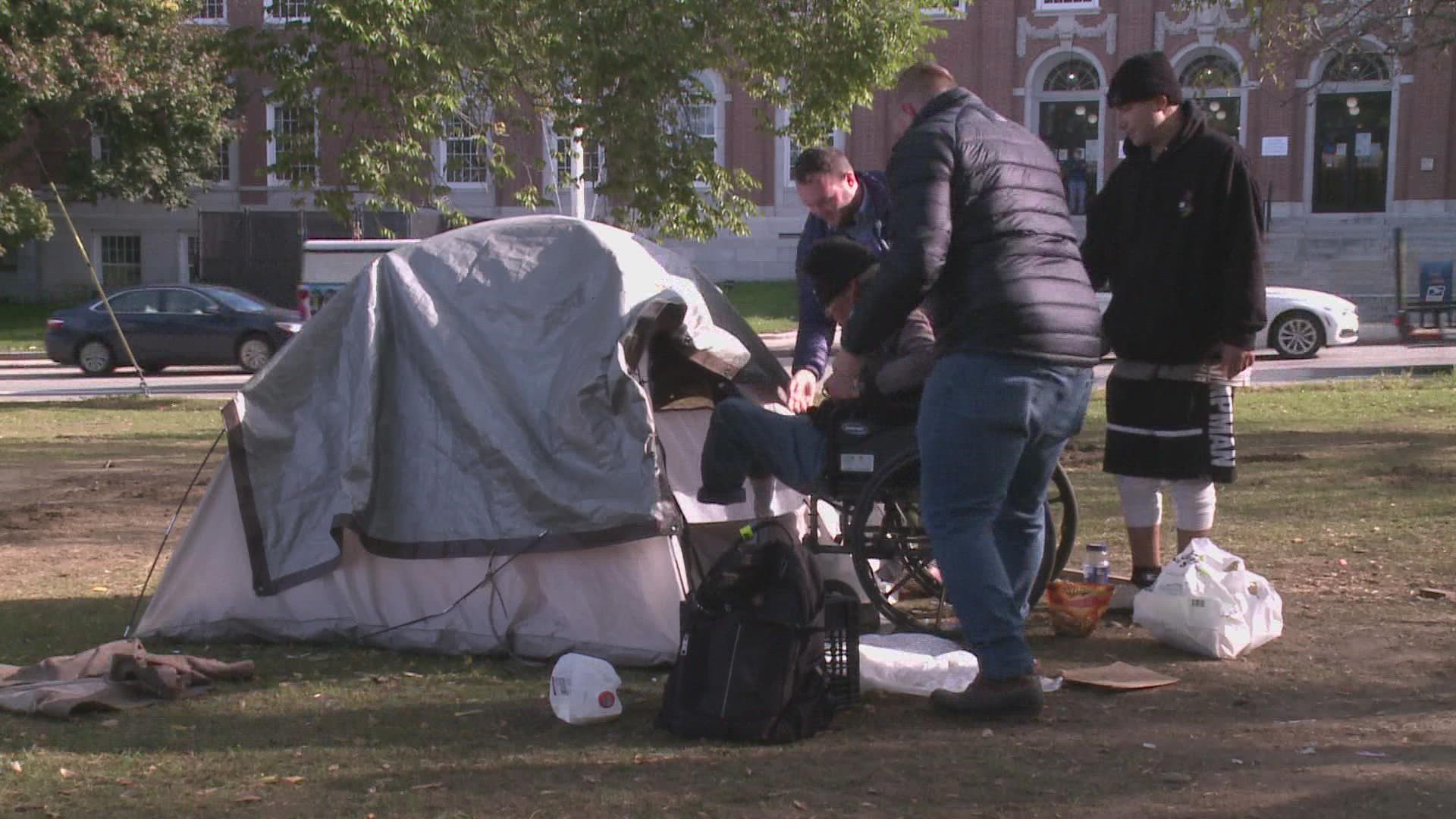PORTLAND, Maine — A front-end loader and men in yellow vests served as a morning alarm on Tuesday for people experiencing homelessness who were camping in Deering Oaks Park.
Karen Orr is a nondenominational pastor and said she was a liaison for the homelessness outreach nonprofit Preble Street. She was making her regular rounds when she came upon the scene, as she comes down each Tuesday morning with sleeping bags and other supplies for those who need them.
City workers nailed a laminated notice to a tree in the park and illuminated a traffic sign on a nearby road warning people not to camp in the area. Shortly after sunrise, they came in with police officers to enforce the notices.
Orr said the camps are pushed from site to site in a nonstop cycle.
"They come here, and then they shuffle around. And in a few days, they’ll be back here, chances are," she said. "In the meantime, more people are lost or, now, they could be freezing."
A city spokesperson directed NEWS CENTER Maine to policies updated in July that deal with illegal camping. The first policy lays out the enforcement and removal of unauthorized campsites on city property.
The city can designate "emphasis areas," sites where illegal camping is frequently found. Workers will inspect emphasis areas more often. The policy also states enforcement should be more relaxed when shelters are full.
"When city-run emergency shelters are at capacity, City of Portland staff shall take a general non-involvement approach to any found unauthorized campsites, viewing those campsites through the lens of not criminalizing people creating shelter due to a lack of housing," the policy stated.
The second policy the city spokesperson listed further outlines city priorities when taking action against a campsite:
- Staff will not require the removal of campsites when area emergency shelters are at capacity unless the campsite is determined to be an obstruction or hazard.
- Most campsites will be noticed at least 24 hours in advance of their removal. Staff will work closely with community partners to offer resources and services alongside enforcement activity, whenever practicable.
- All personal belongings removed from campsites will be inventoried and securely stored for their owners to collect.
Abraham Gammon sat in his tent, gathering his possessions, as the massive front-end loader dumped items into a truck feet away.
Having had both of his legs amputated within the past year, he was one of the last people to pack up, and others who had finished moving their belongings came over to help.
The park had become a gathering place for large groups since the pandemic caused Preble Street and other shelters to limit access as infections spread. Gammon said the park offered a community where people took care of each other.
"We’re all human. Not all of us are bad people," he said. "Given a shot, a lot of these people could be very successful. I’m on the list for housing and stuff. And, hopefully, I get it soon because the snow’s gonna fly, and it’s really cold out. It’s already cold."
Before settling in the park, Gammon spent last winter camping across from the Oxford Street shelter a few blocks away. He and others prepared to spend more cold nights back at that spot.

